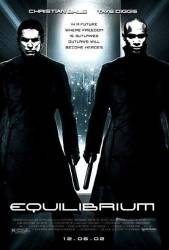
Question: The movie's whole point is that emotions have been stamped out, correct? So why does Taye Diggs smile almost constantly and shows obvious glee, and the Vice Councilor pounds the table in rage. Wouldn't the elite of the government be the ideal?
Answer: I am sure Brandt is dosing every day. He even talks about getting his dose adjusted at the beginning of his partnership with Preston, stating: "I am a wary person, cautious by nature, always expecting the worst." And yet he definitely does seem to display anger and he smiles throughout the movie. In my opinion, the only member of the elite that is NOT taking the Proseum is "Father" since he admits as much to Preston at the very end of the movie, and he eradicated due process for offenders: He is a psychopath and so doesn't need Proseum to suppress emotions he doesn't have. Yet warning Preston at the end that he is "treading on his dreams," shows his narcissism. Maybe Brandt's "emotions" are merely acting, as he was from the start part of "Father's" plan to set Preston up. Therefore, he isn't really "feeling" at all: merely acting. One can act as though one is angry or sad or happy without actually feeling anything at all. I am sure that Brandt never came off his interval.
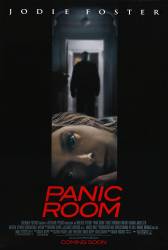
Question: I don't really understand why Jodie Foster's character didn't tell the police something was wrong when they came to the door. I know she was worried for her daughter but the robbers couldn't overhear and she could have asked the police to come back later, giving her a chance to smash the cameras. Also, considering that she emphatically denied there was anything wrong, why did the police return later with all the guns etc?
Answer: But if Jodie Foster was so keen to placate the burglars and protect her daughter's life then why did she smash the cameras after the police left? It doesn't make sense.
She smashed the cameras, so the thieves in the Panic Room couldn't see what she was doing. That's why the thieves had said, "Why didn't we do that?"
Answer: The cop told Jodie "if you can give me some kind of signal." Jodie runs her fingers through her hair, that's the signal.
Answer: One doesn't ask the cops to come back later, especially when one's daughter's life is a stake. Also, the cops came back because they just didn't believe her and felt that something was up (call it intuition).
Not only that, Jodie Foster said that "they were good", why would she say that they are good if not that they were right?
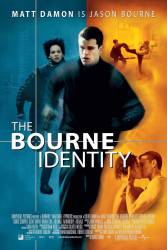
Question: What is Jason doing with the tape and the car window, in the scene before he drives Marie to Eamon's house?
Answer: He taped the door edges so they wouldn't leave fingerprints on the car.
Chosen answer: He is taping up the car window that he broke in order to keep some of the winter weather out.
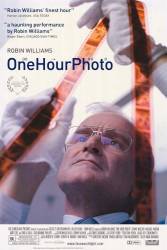
Question: Does the photo at the end with Sy and the family actually happen or is this just Sy imagining what life could have been like with them?
Chosen answer: This is mentioned on the DVD commentary - it's deilberately open ended so one can interpret it as either it's Sy imagining what he wants to happen OR it's what really happened.
As Neil Jones said, the ending is open for interpretation. However, I think there is reason to believe that Sy imagined the photo. It shows him and the family outside of their house, all looking happy together. Would they want to take such a photo with Sy after the incident at the hotel? And before the incident, they were probably not close enough with Sy that he would be in a photo taken at their home. Him and no other guests/visitors.
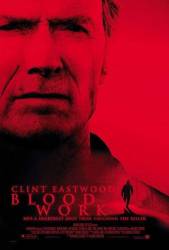
Question: I missed something. What was it that Clint Eastwood noticed that made him realize his friend was the killer?
Chosen answer: When looking for clues to the identity of the killer, he comes across a code with the numbers, 903 472 568. He quickly realizes that Noone is the killer because in the code there is "No one".
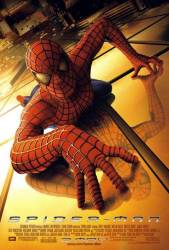
Question: What was Tobey Maguire's full process to get Spider-man's body? What was his body and fighting training and food diets? Is there any website where they have it in full writing?
Answer: The following is taken directly from People Magazine May 27, 2002: WORKOUT: Maguire exercised for at least 3.5 hours, six days a week, with his regimen varying "depending on how sore he felt," says Joujon-Roche. Mornings were spent improving his flexibility with yoga and splits, along with building strength through abdominal and lower-body exercises on an oversize ball. "We would just work on each body part until we killed it," Joujon-Roche says. "Then the next day we'd go to another and kill that one." Afternoons were devoted to cardiovascular activities like martial arts and cycling, to burn fat, plus gymnastics. "Tobey did his own flips with that Spider-Man hood on," says Joujon-Roche. "We gave him self-assuredness." DIET: For breakfast Joujon-Roche made the actor, a vegetarian, a "high-protein shake that included nuts, essential oils and vitamins." Lunch, he says, was often "marinated tofu with broccoli and walnuts and dinner a big veggie burger with brown rice." The menu varied with Maguire's output. "If his workout was pure weights," says Joujon-Roche, "he needed protein. If he did cardio, he'd have a shake of all carbs."

Question: I found it odd that Slim's real name is never revealed. Why does she have this nickname, with no explanation as to why she never tells anyone her real name? Was there a deleted scene?
Answer: I wonder if the nickname is related to the difficult times in her life. Her father was not around. She and her mother did not have much money. Maybe she felt that she had a "slim chance" of life getting easier.
Answer: From memory her daughter says "I don't even think you're that slim" making a dig she's not that skinny, maybe it's due to her being thin?
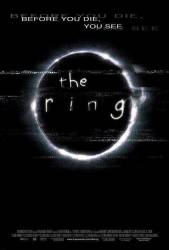
Question: When does Rachel realise if she shows the film to someone else she won't die? And if she knew, is that why she showed it to Noah, to kill him on purpose?
Answer: At the end of the movie, she is crying about why she wasn't killed and Noah was. She vocalizes "What did I do, that he didn't?" That's when she sees the copy she made. It wasn't that she just showed it to someone else. She made a copy and Aiden watched that copy. Aiden is why it skipped her.
Almost right. It's just the copy. Copying the video makes it skip you. That's why she has Aiden make a copy as well.
You have to show the copy to someone else as well. That's why Aiden asks Rachel at the very end "What about the person we show it to? What happens to them?"
But doesn't he have less than a day left by then? Hardly a time to relax, they need to make a terrible decision, quickly. I always had the idea making a copy was enough because of that.
He watched the tape the morning of either Rachel's 4th or 5th day, so he should have at least 3 days left by this point. Though it appears the film was being inconsistent with the markings that Samara leaves on the tape's viewers, since Rachel noticed Samara's hand print on Aiden's arm and then his nose started bleeding. For Rachel, she got her nosebleed before receiving the mark on her arm.
Actually, you need to do both: make a copy and show it to someone else. This is further explained in The Ring 2. At the beginning, the guy had made a copy but since the girl covered her eyes and didn't watch the whole thing, he was still killed by Samara. So making a copy is not enough in itself to be spared if no-one else watches it. The same goes for Rachel. She made a copy on the 2nd day, but Becca tells her she only has 4 days left when she visits the psych ward indicating she hadn't been spared yet. It's only after Aidan watches the copy she made that death skips her for good.
Answer: No, it's wrong. Just making a copy won't save you; you need to show it to someone else, and then this someone else is cursed instead of you. The Japanese movie explains it well. Plus, in the official second movie, a man dies from Samara after making the copy because nobody watched it. Also, at the end of the 1st movie, Aiden asks from the copy, "What will happen to the one who will watch it?"
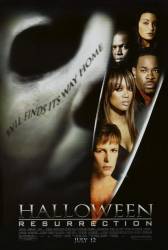
Question: Why did Michael hand the knife to the patient with the clown mask after killing Laurie at the beginning of the movie? Was he trying to frame him for the murders at the institution, or was there a deeper meaning I might have missed?
Answer: Or maybe he's thinking that his mission to kill Laurie is done. He's been trying to kill her for a long time and succeeded. No need to continue, but when those kids invaded his house, the killing began again. No one goes into his house, but him.
Chosen answer: Michael handed the knife to the guy in the clown mask so it looked like the guy in the clown mask killed Laurie, not Michael.
He actually handed the knife to the guy as a memento, not to frame him.
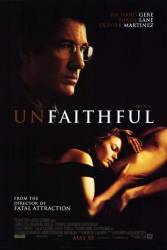
Question: The final scene in the car at the red light in front of the Police station. They are discussing escaping to Mexico for the rest of their lives. They hold each other. The car doesn't move. Do they give themselves up to the police? Is that what the writer is implying?
Answer: Although Connie wanted them to go to Mexico and assume new identities, it is implied that Edward, who initially goes along with that idea, will likely turn himself into the police. However, there's no definitive ending given, so the audience is left to interpret the outcome.
An alternative ending was shot in which Edward says goodbye to Connie in the car and walks into the police station. The director discusses this on the commentary track. The alternate ending is on the DVD.
Answer: Connie wants to say she is guilty and asks her husband to forgive her.
Answer: I think that they had already decided that Edward would turn himself in after the school event. That's why the were so sad when they danced and why they engaged in an escape fantasy conversation at the red light. They knew that the police would soon figure it out and it was only a matter of time before Edward would be arrested. Rather than live in fear, they decided that it would be better for Edward to turn himself in. That's my answer but I have two other questions that I can not answer. 1. WHY did she do it? 2. How long did the affair last? I can't figure out the season but m y guess is between fall and the end of November but I can't be sure because the seasons don't seem to be correct. Is it sunny/warm enough to plant a garden in November in NY? I don't think so.
"Why did she do it?" I think that is the question she asked herself once she realised that she had made a terrible choice. Initially, it made her feel alive and young and excited. She had everything, but she began to feel invisible. Ultimately, her son will suffer the impact of her choice, and she will never have peace again.
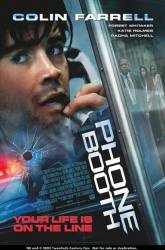
Question: Are the pizza delivery guy and The Caller two different characters? I was always under the impression that they were one and the same.
Answer: The pizza man is intended by the Caller to be a decoy so he can get away. The Caller sends the pizza man to the phone booth so that Stu will identify him later in the apartment, giving the police a convenient answer to the mystery while the real Caller escapes. In fact, at the end of the movie, the Caller comes to visit Stu - obviously he's not the dead pizza delivery man.
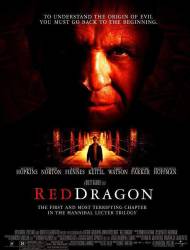
Question: Was there any specific reason that Dolarhyde chose his victims other than through home movies? Was there anything about the families that made him want to kill them?
Answer: His choices had to do with the layout of peoples' property. At his job, he studied customers' family video tapes that contained scenes of their homes and yards. He looked for seclusion around the properties, easy-access back entrances, whether there was a family dog that would bark, and so on.
But what was his reason for killing them? Was it because he saw a happy family and he was angry because he never had one or because he saw a life that he would never have?
He chose the houses that had big backyards. During the Edward Norton/Lecter interaction, Lector says something about how blood looks in the moonlight.
Answer: "Because it made him a god" as it was put early in the film.
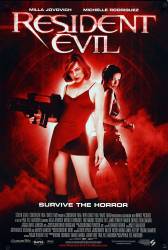
Question: Is the reanimation of dead people the purpose of the virus, or an unforeseen side effect? If it's a side effect, what was the original purpose of the T-Virus?
Answer: Actually the T-Virus was originally meant as a cure for a genetic disorder that Dr. Ashford and James Marcus daughters suffered from. The reanimation was a side effect and James Marcus was killed by Dr. Alexander Isaacs so he could take control of it and turn it into a bio-weapon.
Answer: The original virus was a "Fountain of Youth" type of thing. Reviving dead cells so the host would stay young. It was so powerful that it reanimated the dead.
Answer: Wait, wasn't the original virus meant to control the scientists daughters genetic disease, not an eternal life serum.
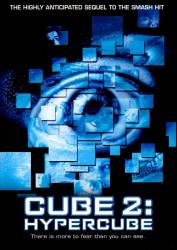
Question: If Sasha really is blind and she is Alex Trusk but she IS a computer hacker.What good is a computer hacker that blind wouldn't she not be able to see the screen or anything of the sort?
Chosen answer: Blind people use computers all the time. There are Braille monitors that interpret the visual images on the screen into Braille. They can also use speech synthesisers to convert the images into audible information.
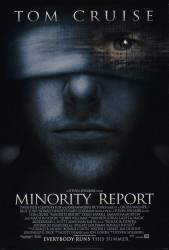
Question: There's a quote that I don't understand: "The fact that you prevented it from happening doesn't change the fact that it was going to happen." I immediately thought, "Yes, it does change the fact that it was going to happen." If Witwer hadn't put his hand there, it would have happened. However, he did, thus "changing the fact that it was going to happen," right? Isn't this the point of the whole movie: determinism is foolish and that different actions produce different consequences?
Answer: No, he didn't change the fact that it was going to happen. He prevented it from happening. But until he stopped it, it was going to happen. And no matter how many times you look back at that sequence, it was going to happen. Up until a point, it was going to happen. It was just prevented.
Answer: The statement involves the idea of arresting people who did not commit the crime yet but are going to. Until the precogs tell someone to change things, the idea is that it will happen. If Anderton had rolled the ball and the other guy was not watching, it was going to fall. The only way to change it would have been for Anderton to say something. Things will happen unless the future is changed. Ultimately the idea is proven sketchy at the end at best.
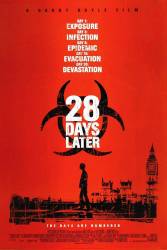
Question: At the end we are left with the question of the pilot's intentions, and what happened. Is he going to help them, or pull an about-face and machine-gun them down thinking they're infected?
Answer: That question is actually answered. The pilot is speaking Finnish, and he says into the radio "lähetätkö helikopterin" which translates as "Can you please send a helicopter?" Looks like he was actually helping them after all, and there is still some civilization (or at least people with radios and helicopters).
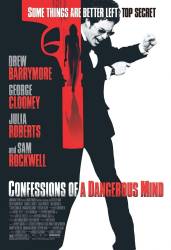
Question: What is going on with George Clooney during the scene on the diving board? Where did all the blood come from? Did he kill himself?
Answer: He was presumably shot by the double agent. Which is why he tells Barry 'It's up to you now.'
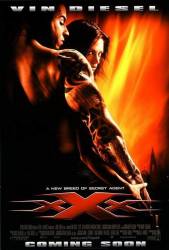
Question: At the start when the agent gets shot at the concert, what is the name of the band and the song that they are singing?
Answer: Rammstein - Feuer Frei! Look for it on YouTube.
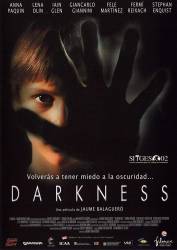
Question: Why does the girl cut her dad's throat, if she knew that it would fulfill the curse?
Answer: She was trying to help him breathe.
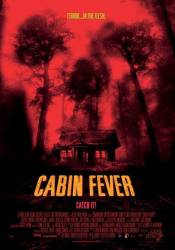
Answer: Because of their display of emotions it is clear that the elite are not taking their Prozium. If the idea of the emotionless society worked, then yes the elite should be taking their Prozium. However, this society obviously doesn't work and instead of being the solution to all man's problems, Prozium have just become a way of subduing the masses while the elite are free to do as they please.
Andreas[DK]